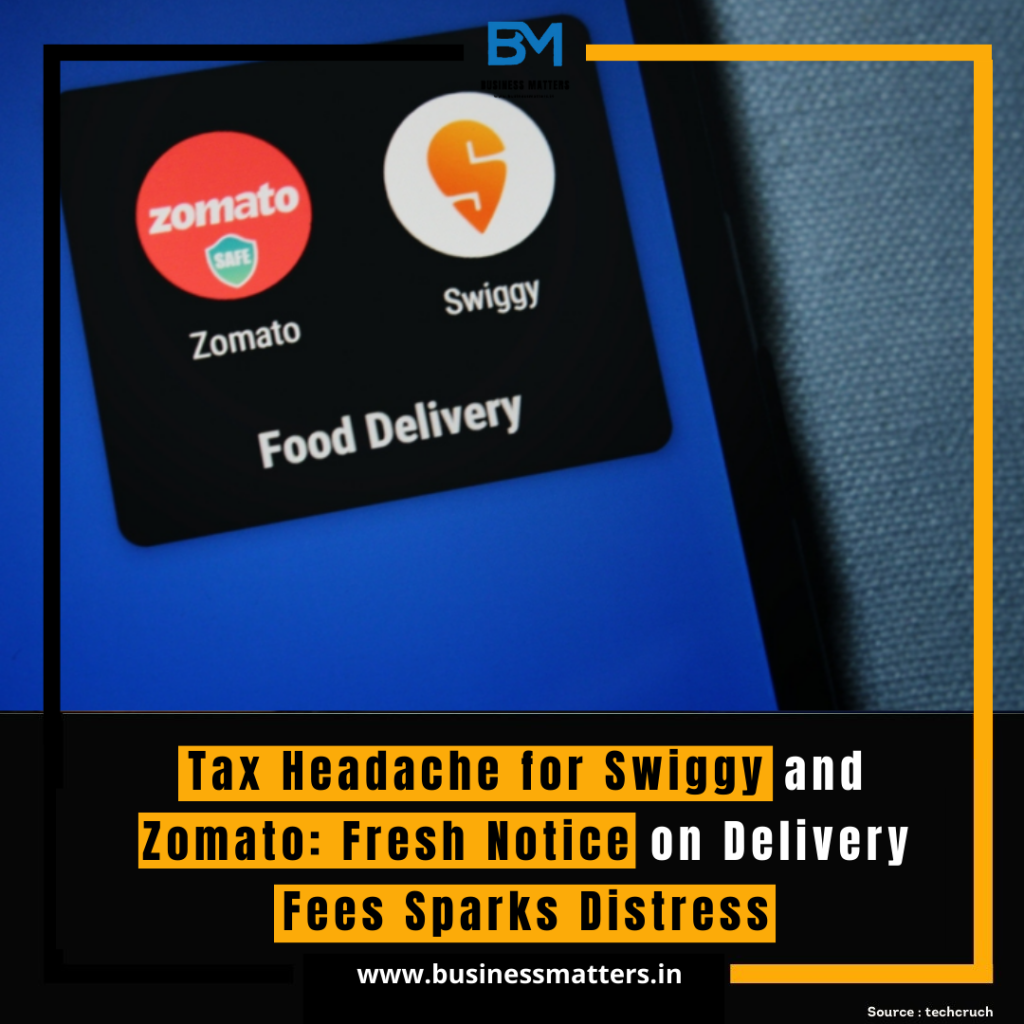In a recent development, Swiggy and Zomato, the giants of the food delivery industry in India, find themselves in a quandary as a fresh tax notice on delivery fees threatens to disrupt their financial equilibrium. This unforeseen tax challenge has sparked distress among the food delivery platforms, adding another layer of complexity to an industry already grappling with various operational challenges.
The crux of the issue lies in the taxation of delivery fees charged by these platforms. The tax authorities have issued a notice questioning the taxability of these fees, asserting that they should be subject to Goods and Services Tax (GST). This move has caught Swiggy and Zomato off guard, as the tax implications could significantly impact their bottom line.
Delivery fees have been a crucial revenue stream for food delivery platforms, helping them maintain a delicate balance between customer affordability and operational sustainability. Any alteration in the tax structure for these fees could lead to a ripple effect on the entire ecosystem, affecting not only the platforms but also the restaurants and consumers involved.
The food delivery industry has been a dynamic and competitive space, with Swiggy and Zomato continually innovating to stay ahead. However, the introduction of this tax challenge adds a layer of uncertainty and financial strain. The platforms are now faced with the daunting task of reassessing their financial models, considering the potential impact on their profitability and market standing.
One of the immediate concerns is the possible pass-through of this tax burden to the end consumer. If the delivery fees become subject to GST, the platforms may be forced to increase these fees, resulting in higher costs for consumers. This, in turn, could influence consumer behavior and loyalty, creating a delicate balancing act for Swiggy and Zomato as they navigate through the intricacies of pricing dynamics.
The tax distress also raises questions about the broader regulatory framework governing the gig economy. The delivery personnel, often considered freelancers or gig workers, have been a focal point of discussions around labor rights and benefits. The tax notice adds another layer of complexity to the ongoing discourse, as it could potentially impact the earnings and livelihoods of these delivery partners.
In response to the tax notice, both Swiggy and Zomato are engaging with tax authorities to seek clarity on the matter. The outcome of these discussions will be closely watched, as it not only affects the financial health of these platforms but also sets a precedent for the broader gig economy in India.
As Swiggy and Zomato grapple with this unforeseen tax challenge, the incident underscores the need for a collaborative and transparent approach between industry players and regulatory bodies. The evolving nature of the gig economy requires a nuanced understanding of its various components, ensuring that regulations are not only fair to businesses but also protect the interests of workers and consumers.
In conclusion, the tax headache for Swiggy and Zomato is a testament to the ever-changing landscape of the food delivery industry. As the industry matures, it encounters new challenges, and navigating these challenges requires adaptability and proactive engagement with regulators. The resolution of this tax issue will undoubtedly shape the future trajectory of not only these platforms but also the broader gig economy in India.


